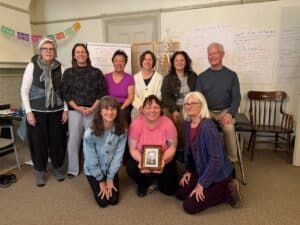Grief in Five Element Acupuncture
Grief in Five Element Acupuncture is viewed as a natural emotional response to the loss that comes with life transitions. Grief carries a heavy emotional charge, especially in mainstream Western culture. The unbinding and dissolving of ties – whether in relationship, community, work, or even our own bodies – can be painful. Yet modern society gives us little guidance for understanding and navigating the pain that comes with loss. Grief is often labeled as illness, confused with depression, and treated with pills.
Grief is not an illness. Five Element acupuncture and ancient Chinese medicine view grief as a natural part of our emotional landscape. Nature wastes nothing, and grief exists for a reason. Embracing this alternative view of grief can help us process and move through to the next phase of life.
Autumn, the Metal Element and Grief in Five Element Acupuncture
The Five Elements embody the cycle of life change seen in nature in the seasons of the year. Autumn is the season of the Metal Element. To learn more about the Metal Element in nature, watch the video , or read an earlier post.
The Five Elements and the seasons also work within us, and each Element manifests a predominant emotion. Grief is the emotion of Autumn and the Metal Element. Autumn, exquisitely beautiful, is nonetheless a time of decline and loss. As the days shorten and cool, nature turns inward. The life energy of plants and other living things returns to the root.
Trees put on a final flush of color before losing their leaves and exposing bare limbs. The bare limbs may appear lifeless, yet it is this loss that allows the tree to survive the harsh conditions of Winter. If the leaves did not “leave,” the whole tree would die, taking the leaves with it. The parts of the organism must be sacrificed for the survival of the whole.
Only through death can the leaves fulfill their final purpose. Once the leaves have fallen, they rot and become part of the forest duff. Mushrooms, slugs and other forest composters dismantle the leaves into their constituent parts. Rich nutrients are released into the soil, nourishing the next cycle of life.
At every level – from the single cell within the body, to the leaf on the tree, or the individual in society, or even the species in the ecosystem – apparent death is part of the cycle of life. The ancient Chinese, pre-dating the science of ecology by thousands of years, observed these cycles. They made sense of what they observed through the language of the Five Elements.
Rites of Mourning
The grief we experience with separation and loss is beyond the understanding of science, yet the process of mourning is universally human. Every traditional culture, including Confucian China, had rites of mourning to help regulate the afflictions of grief. Ritual created a container that allowed healthy expression of bereavement, encouraging mourners to move through the process of grief and transform it. Ritual connected the grieving person back to community and to the living, breaking through feelings of isolation that accompany loss.
Modern Western culture has lost its rituals. Without rites of mourning, we are left without a clear path to transform grief. Bereavement has taken up residence as an illness. In the DSM-5 (the standard for diagnosis of mental illness) any bereavement extending beyond two weeks may be diagnosed as major depressive disorder. Many in the mental health community debate the DSM definition of bereavement. If the experts can’t sort out grief from depression, how about the rest of us?
Grief is Not Depression
Grief and depression share some characteristic feelings. Someone who is grieving may appear to be depressed. In both, people typically experience sadness and a feeling of emptiness. Often, they cry, they can’t sleep, and they don’t feel like doing anything. Nothing gives them pleasure and they lose interest in life. They may feel isolated and disconnected from others.
There is no timeline for resolving grief. Every person is unique in how they cope with and express grief. Yet, it is important to sort out grief from depression. And for some, a major loss or life trauma can trigger clinical depression lasting for years.
There are a few key points to help sort out grief and depression:
- In grief, feelings of sadness and emptiness tend to ebb and flow. They may subside for a while, and then be triggered unexpectedly by an event or an anniversary. In depression, the feelings may persist unabated for months or years.
- Someone who is depressed may lose his/her sense of self-esteem. Loss of self-esteem is not typical of grief.
- In depression, people often feel isolated and cut off, yet they shun assistance. A grieving person is more likely to respond when others reach out and offer support.
What is Grief? Creating a Vocabulary of Grieving
Grief covers a lot of emotional territory. When we grieve, many things happen in our bodies and in our minds. A lot goes on in grief, yet we have few words in English to summarize the many different emotions, feelings and body sensations that sweep through us, ebbing and flowing over time. It’s as if we are stuck in a terrible, foreign emotional landscape without a map.
Fortunately, understanding grief in Five Element acupuncture theory can give us the map we need! To find our way through the territory of grief, we need words and concepts to describe it fully. The vocabulary we need already exists, packed into the language of Chinese medicine.
The ancient Chinese viewed mind and body as one. Body sensations and physical states, as well as feelings, are part of grief. The essential oneness of body/mind in Chinese medicine provides a unique perspective on human emotion, radically different from Western biomedicine. Tapping into this ancient wisdom can give us a better way to understand and transform grief.
In Part II of this article, we will explore the vocabulary and concepts of grief in Five Element acupuncture and Chinese medicine. We will explain the special connection of grief to the energies of Lung and Heart, and how we can use that connection to create the antidote to grief and sadness.



